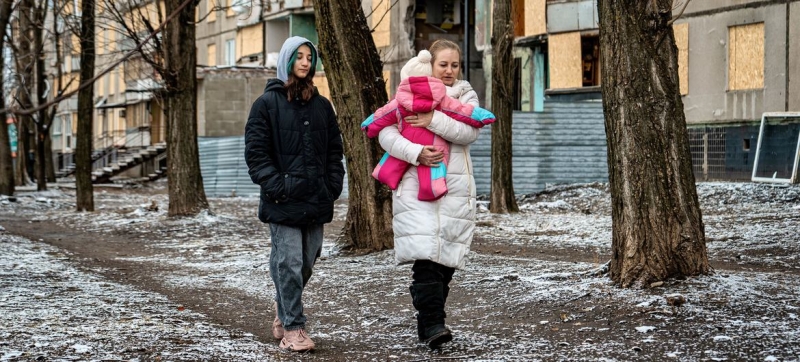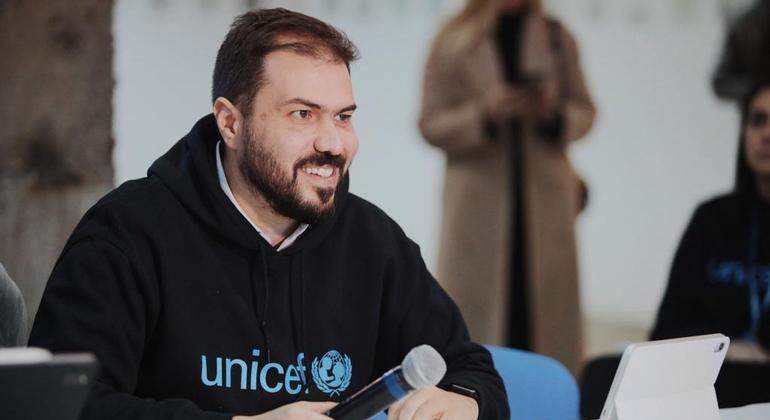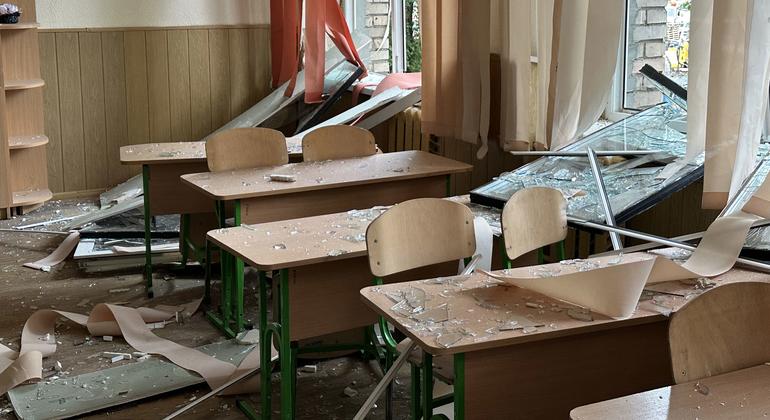
Due to shelling and destruction of infrastructure, Ukrainians are left without heating and water. Cold, dark, no water: how UNICEF is helping Ukrainians survive the fourth winter of the war Humanitarian assistance
UNICEF is supporting the repair of damaged civilian facilities in Ukraine, but there is no guarantee that they will not be destroyed again in new attacks. According to Kenan Madi, head of field operations for UNICEF Ukraine, the UN Children’s Fund is doing everything possible to help millions of young Ukrainians living in conditions of war, constant shelling and power outages.
“Families need basic necessities, such as water. Children need a safe place to learn and interact with their peers because in many cases they don’t have that opportunity,” Madi told UN News Service. access to water, education and psychological support in the most affected regions of Ukraine. In September alone, the organization helped 300 thousand people gain access to clean water, and since the beginning of the year, more than three million Ukrainians have received such support.
However, restoring infrastructure is becoming increasingly difficult: attacks on energy and water facilities are not stop.
Psychological support
Much attention is paid to psychological assistance. “Children living near the front line are under enormous pressure. We have a mental health team that has helped around 16,000 children and 25,000 parents and carers in the last month alone. And within a year, more than 300 thousand people received psychological support,” noted the UNICEF representative.

Preparing for winter
The campaign to prepare for winter began in mid-September. “We have provided cash assistance to more than 30 thousand people and the campaign is ongoing. This is very important – especially in front-line areas – for families who use these funds to buy fuel, warm clothes and other necessary things before the winter season,” Madi said.
He noted that due to shelling and destruction of public infrastructure, people are left without heating and water: “UNICEF mobilizes all resources to restore damaged facilities – water utilities, pumping stations. Unfortunately, these services often come under attack, and this directly affects the lives of children in front-line areas.”
Recent attacks have shown that humanitarian needs extend far beyond the front. “Due to the attacks in Kyiv and the Kyiv region, there were power outages in the city. There are reports of problems also in Chernigov, Sumy and other regions. This affects water supply, heating, as well as the well-being of children and the daily lives of people,” said the UNICEF representative. Some rural areas are in complete darkness. Families with children live in such conditions.”
Education during war
UNICEF continues to support the education system of Ukraine. According to Madi, in the front-line regions, about 350 thousand children have returned to classes, but more than 400 thousand are learning in a mixed format – in person only one or two days a week, because there are not enough shelters in schools. At the same time, about 280 thousand children study only online.
An employee of the UN Children’s Fund noted that distance learning cannot replace normal lessons: “If children lose the opportunity to learn, then it is difficult to make up for it.” At the same time, the consequences of disruptions in the educational process will be felt in the long term.

Since 2022, UNICEF, with the support of the Ukrainian government and donors including the EU, Germany, Korea, Norway and Spain, has rehabilitated more than 100 schools and kindergartens. “This year another 42 are in the process of renovation. We quickly help schools with repairs, but some of them are damaged again due to impacts,” Madi said.
Lack of funds and growing needs
UNICEF’s assistance plan for Ukraine is 78 percent funded this year. “Globally, there is a reduction in humanitarian funding, and the needs of the people of Ukraine, unfortunately, are only increasing,” Madi noted. electricity.
The story of a resident of Kharkov
“I was recently in Kharkov,” Madi said. “There I met a woman who is raising twins with autism. It’s very difficult for her. Lack of access to services greatly impacts these families.”
“UNICEF was able to help her with cash payments ahead of the winter so she could buy essentials, including warm clothes and blankets,” added he.
According to Madi, there are many such stories: “This is not an isolated case. So many families are struggling to survive from day to day. Unfortunately, every year it becomes more and more difficult for them.”
“Children deserve a better future,” the UNICEF representative emphasized.
